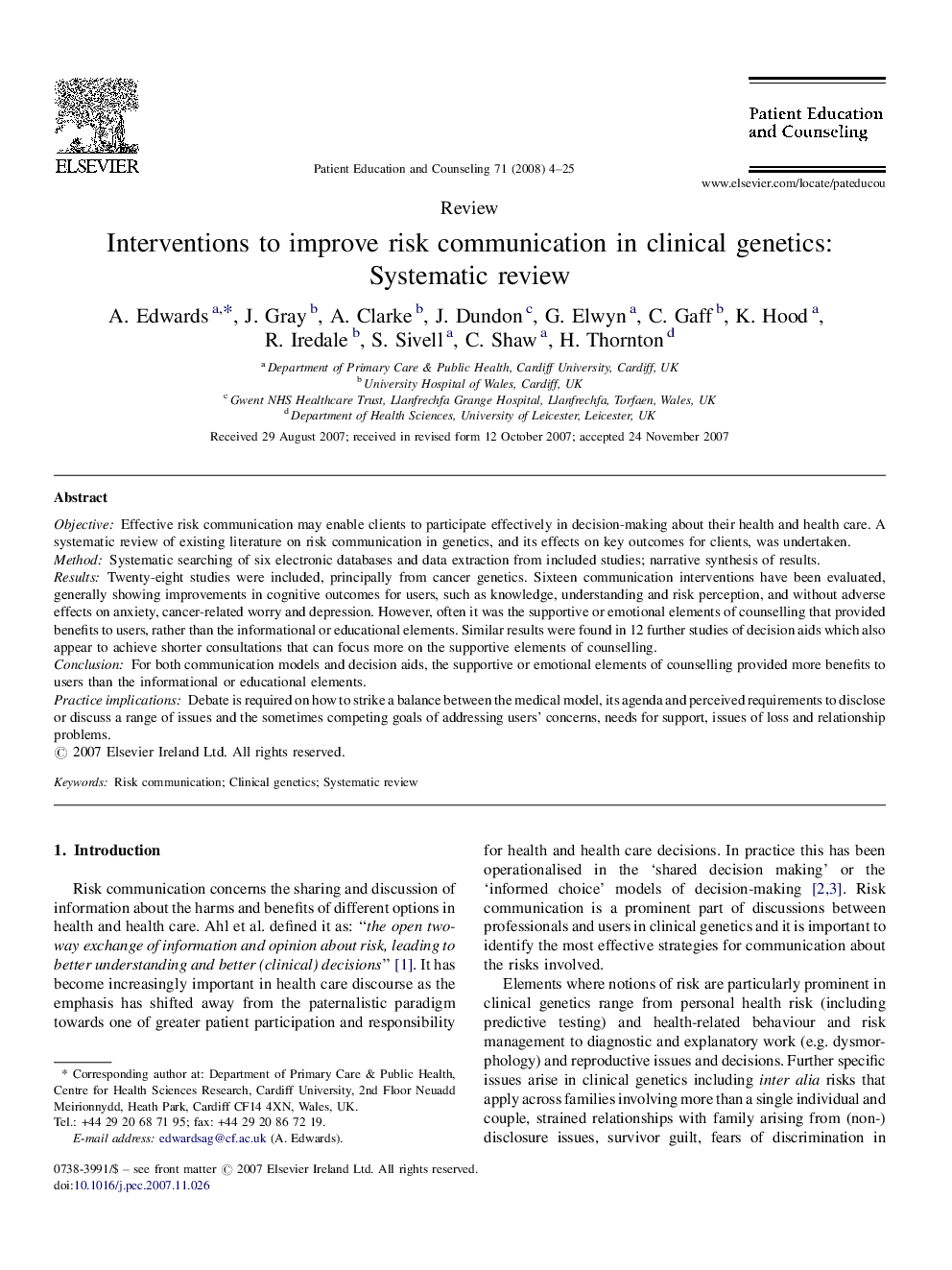| Article ID | Journal | Published Year | Pages | File Type |
|---|---|---|---|---|
| 3814212 | Patient Education and Counseling | 2008 | 22 Pages |
ObjectiveEffective risk communication may enable clients to participate effectively in decision-making about their health and health care. A systematic review of existing literature on risk communication in genetics, and its effects on key outcomes for clients, was undertaken.MethodSystematic searching of six electronic databases and data extraction from included studies; narrative synthesis of results.ResultsTwenty-eight studies were included, principally from cancer genetics. Sixteen communication interventions have been evaluated, generally showing improvements in cognitive outcomes for users, such as knowledge, understanding and risk perception, and without adverse effects on anxiety, cancer-related worry and depression. However, often it was the supportive or emotional elements of counselling that provided benefits to users, rather than the informational or educational elements. Similar results were found in 12 further studies of decision aids which also appear to achieve shorter consultations that can focus more on the supportive elements of counselling.ConclusionFor both communication models and decision aids, the supportive or emotional elements of counselling provided more benefits to users than the informational or educational elements.Practice implicationsDebate is required on how to strike a balance between the medical model, its agenda and perceived requirements to disclose or discuss a range of issues and the sometimes competing goals of addressing users’ concerns, needs for support, issues of loss and relationship problems.
